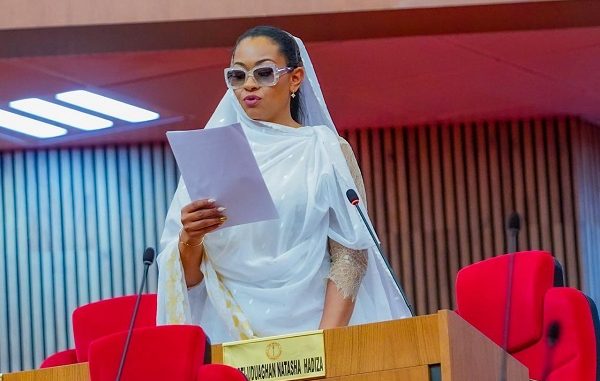
Security operatives on Tuesday barred Senator Natasha Akpoti-Uduaghan, representing Kogi Central, from accessing the National Assembly premises in Abuja, sparking scenes of tension and renewed debate over her controversial suspension.
Akpoti-Uduaghan, who was suspended from the Senate in March 2025, arrived at the National Assembly gates in a black vehicle shortly after noon, accompanied by supporters and fellow activist Aisha Yesufu.
Despite presenting her credentials and asserting her intention to resume legislative duties following a recent Federal High Court ruling, heavily armed police and Department of State Services operatives denied her entry.
Eyewitnesses described a dramatic standoff as security barricaded the entrance, and the senator’s supporters argued with officers.
After several minutes, Akpoti-Uduaghan exited her car and proceeded on foot into the complex, with media and supporters trailing behind.
Security officials made no immediate attempt to physically restrain her, even as they maintained their blockade for vehicles.
The incident followed days of mounting security at the National Assembly gates, with officials reinforcing their presence in anticipation of Akpoti-Uduaghan’s return.
She had previously cited a court ruling as empowering her to resume her role, which the Senate disputed, claiming there was no enforceable order for her reinstatement and urging her to await the conclusion of appeal proceedings.
“The court did decide on that. Now, they argue that it’s an order, it’s not an order, but it is a decision,” Akpoti-Uduaghan said earlier in the week, reaffirming her intent to return to the chamber and calling her suspension unconstitutional.
Senate officials warned against any attempt to “force her way into the chambers,” and insisted that the institution would uphold internal disciplinary procedures until legal proceedings conclude.
As of press time, Akpoti-Uduaghan had gained access to the assembly complex on foot, but tension remained at the entrance, and the situation was being closely monitored by civil society observers and media.
